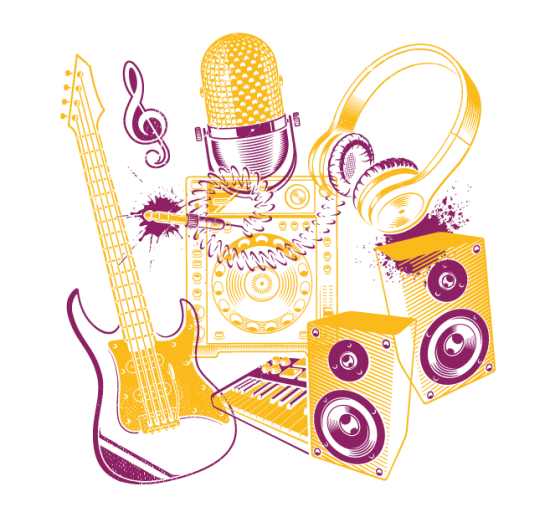The State of Protest Music
Gretsch School of Music

Art has been (and still is) a reflection of the society from which it was created for centuries. Regardless of your political ideology, place of birth or social status, there is always an injustice worth protesting. Music is a natural medium through which to express oneself, especially for those whose voices have been otherwise repressed. The most poignant example is the music that arose from former slaves and their descendants who found themselves free but oppressed in a racially divided America. Beginning with spirituals and the blues leading to bands such as The Last Poet and Public Enemy, social commentary is a vital part of musical protest.
The counterculture anti-war sentiments during the Vietnam Era of Bob Dylan singing “Masters of War” or Jimi Hendrix’s unique rendition of the “Star Spangled Banner” represent a generation’s more generalized frustration against global war. Pieces such as “Threnody for the Victims of Hiroshima” composed by Krzysztof Penderecki, which uses thick modernistic orchestral textures, show that these sentiments are not limited to popular genres.
Today’s music is no different. The opening track of Prince’s HITnRUN Phase Two, “Baltimore,” openly calls out a broken system saying “Peace is more than the absence of war… …Let’s take all the guns away” and mentioning Freddie Gray by name merely one month after his brutal death. The murder of George Floyd also inspired many to create new works including the single “Black in America” by Kansas City based Marcus Lewis Big Band.
On the other side of the world, the Russian feminist punk band, Pussy Riot, first came into international prominence after being jailed for “hooliganism” during a protest performance (at the alter in a Moscow cathedral) against the Russian Orthodox Church’s support for President Vladimir Putin. Members of the band have allegedly been jailed or put under house arrest for supporting Putin’s opponents, particularly Alexei Navalny. Rumors are currently circulating that they have attempted to leave Russia to avoid further persecution.
Elsewhere, musicians protest by refusing to submit to censorship. Iranian musician Mehdi Rajabian was arrested for merely announcing that he planned to use female vocalists, which is banned. Rajabian continued the album as originally conceived after posting bail.
Musicians in the United States and around the world continue to use their art as a critical platform and I am happy to report that protest music is alive and well.
— Russell D. Brown, Ph.D., Associate Professor, Gretsch School of Music
